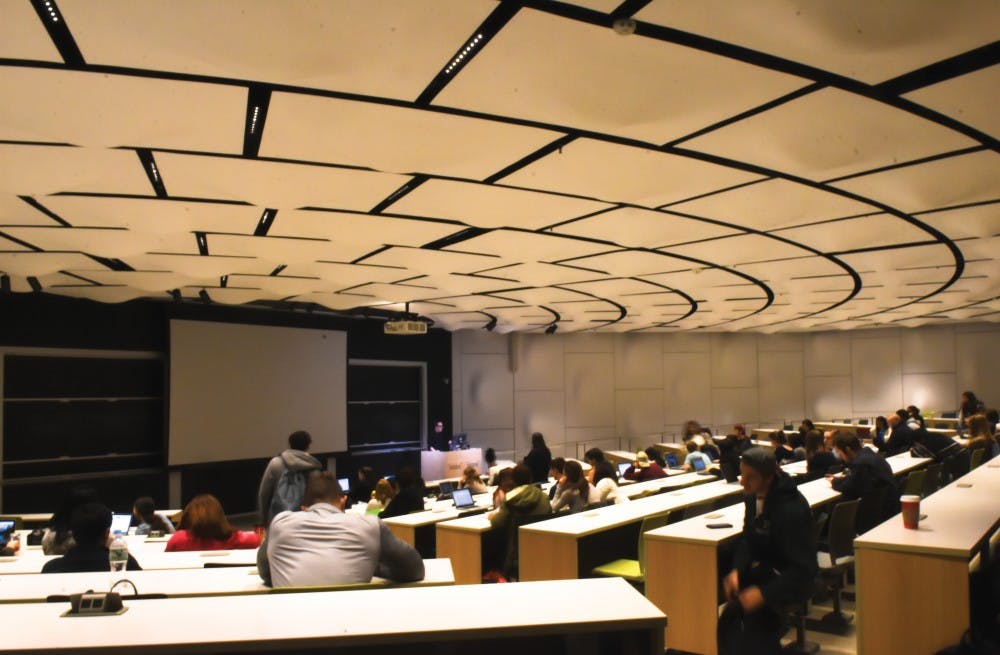As students across the country became distraught following Donald Trump’s victory in the presidential election, professors at Penn and other schools cancelled classes and postponed exams, leaving some conservative students and critics wondering: had Libertarian candidate Gary Johnson or Democratic nominee Hillary Clinton won the 2016 presidential election, would Penn professors have cancelled scheduled classes and midterm exams?
Although the choice to move or cancel class is largely the domain of individual professors, some of the decisions across the Ivy League to do so drew criticism from the public. An accommodation to a Nov. 9 midterm at Yale University received national coverage: an article on Fox News labeled students as, “snowflakes” and a piece on Reason.com said students were “unprepared to cope with reality.”
During this process, Vice Provost for Education Beth Winkelstein suggested faculty recognize the importance of understanding student needs as a result of the tumultuous election.
“I communicated with faculty and undergraduate deans to be sensitive to students at this moment, be flexible in considering students’ requests regarding assignments, and remind students of the resources available across campus to support them,” she said in an email.
Students of color told Penn President Amy Gutmann in a tearful, emotionally charged University Council meeting the day after the election how scared Trump’s election made them feel. A vicious, racist series of GroupMe messages sent to black freshmen days later, from usernames with pseudonyms like “Daddy Trump,” roiled campus as well. In the aftermath of the racist attack, which was linked to students in Oklahoma, Students Organizing for Unity and Liberation organized a walkout from class on Nov. 17.
However, other students and faculty were concerned with the accommodations and whether the same would have been done for students who would have felt disheartened had Clinton won.
Regardless of political affiliation, students interviewed agreed that scheduling large assignments or exams near significant events may be problematic.
“Putting exams after elections is irresponsible. If the University wants students to be involved in politics they shouldn’t force them to study instead,” College and Wharton sophomore Anna Schmitt said.
College sophomore Christian Petrillo, who voted for Trump, agreed with Schmitt, but questioned whether professors would have reacted in a similar way if Clinton had won.
“I have nothing wrong with people coping in different ways,” he said. “I’m not one to criticize the fact that professors that postponed exams and cancelled classes, which is already in poor taste, but I wonder if the same would happen had Hillary Clinton won,” he said.
History professor Alan Kors, a prominent free-speech advocate, shared similar thoughts.
“I’m assuming that as profs who do not like abuse of power and who would never betray their vocation by treating students unequally, they were going to cancel classes to let their Republican students deal with things if the election had gone the other way ... but they just forgot to say that earlier,” he said in an email statement.
Although recognizing the right to anger, other students said they were less inclined to accept, on principle, accommodations for students upset about the result of the election.
“I think it comes down to facing the fact that not everything turns out how we want it,” said Wharton sophomore Eric Hoover, a writer for the conservative campus publication, The Statesman. “There is a problem when students can’t function when their candidate lost ... as far as classroom things go I wouldn’t be for any type of rescheduling or accommodations, but ... that’s [the professor’s] right to do so.”
Students interviewed did not feel overall that Penn appropriately prepared for an election of not only historical significance, but of critical significance to their sense of self and safety.
“Although it was unexpected, you just need a clear procedure of this ahead of time,” College sophomore Kate Dildy, who voted for Clinton, said. “It didn’t seem like the University was ready for any contingencies, including if Hillary Clinton was president.”









